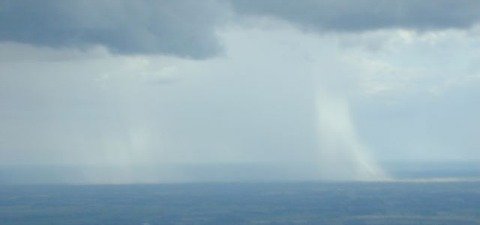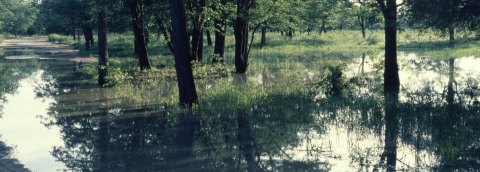Home | About CCW | Contact Us | Climate change Meaning | Causes | Solutions | Emissions | Carbon trading
Severe weather
Severe weather is usually defined as any weather event that risks life, property or requires intervention by authorities.
The World Meteorology Office classifies it into two categories:
- general
- localised
General are events such as wind storms and monsoons that cover relatively wide areas. Some wild fires can also become sufficiently extensive to have an effect on regions.
Some of the larger tropical cyclones could also be considered general although their most damaging wind and storm surges fall into the second category of localised.
Tornados, heavy hail, and floods are typically localised. These events are severe but generally cover on limited areas within the landscape.
In order for a weather event to be considered severe there needs to be hail greater than 25mm in diameter, 93 kph or greater winds, or a tornado.
Precipitation related severe weather events include
- monsoons
- floods
- tropical cyclones
- snowfalls
- ice storms
- hail
Wind related events include:
- downburst
- squall line
- tornado
- tropical cyclone
- dust storms
- wild fires
The cause of these damaging conditions is always a combination of atmospheric moisture, lift and instability.
So events are almost always associated with thunder clouds.

Consequences of climate change
In many parts of the world a combination of the frequency, intensity and extent of damaging weather events is predicted to increase with climate change.
The basic logic is more energy in the atmospheric system will result in more frequent and/or more intense combinations of moisture, lift and instability.
As with most of the climate change effects the specifics are more complex and difficult to predict, especially the where and when these events will occur.
What we do know is that
- more people,
- larger expanses of built up areas,
- greater proportion of land under crops, and
- development in vulnerable areas such as floodplains and coasts,
means that the consequences of severe weather are going to be ever more significant.
It is a tough call to blame climate change for the fact that there are more of us.

Extreme weather is different
Extreme weather is episodes of especially wet, dry, cold, hot or windy conditions that are unusual for the location when compared with historical norms.
Events at what the statisticians call the 'extreme of the distribution'. Or in simple terms unusual, uncommon or unlikely.
This can include damaging weather events but an extreme weather event does not have to be damaging, just locally unusual.
Extreme weather events do have an impact on the biology and ecology of the areas when they occur, especially on the less tolerant species. For example, anyone who has done any gardening will know how challenging a spring frost can be.
As with many climate change effects predictions are for extreme weather events to increase with global warming, especially
- droughts
- tropical cyclone activity and intensity
- increased incidence of high sea levels
Of course, once the climate has changed, then many of these events that would have in the past been extreme may not be.
Odd that.

park bench under water following heavy rainfall
Back to top of severe weather | Back to climate change effects |
Back to Climate-change-wisdom home page

Recent Articles
-
Reducing emissions while looking for solutions...
Nov 01, 15 04:46 PM
I've seen a lot of post's online for ideas on reducing emissions. The one suggestion I have not seen, is the most obvious. There should be a government -
Climate change evidence
Mar 24, 15 06:22 AM
Real climate change evidence has to demonstrate a change in climate. An extra sunny day or a severe storm or a flood is not enough. -
The climate change effect
Feb 19, 15 03:08 AM
What will be the climate change effect? There isn't one, there are many. Perhaps too many for us to understand.

New! Comments
Have your say about what you just read! Leave me a comment in the box below.